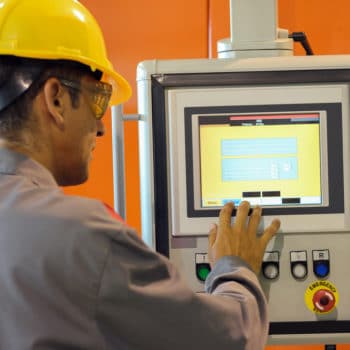Why We Love It
-
$40,720Potential Avg. Salary
-
5.3%Job Growth Rate
-
Growing DemandJob Outlook
-
Good Entry Level SalaryCareer Attribute
Automotive mechanics conduct routine maintenance, perform repairs, and replace parts on cars. They work on a variety of car systems, including engines, transmissions, tires, undercarriages, and exhausts. They use hand tools, power tools, and specialized machinery to restore and repair automobiles.
Recommended Schools
What is an Automotive Mechanic?
The following job responsibilities are common for individuals in automotive mechanic roles:
- Discuss concerns with customers and perform diagnostic tests to determine needed repairs
- Perform routine inspections to identify maintenance needs before more severe problems occur
- Repair components of engines, transmissions, brakes, exhausts, and other vehicle systems
A Day in the Life of an Automotive Mechanic
Automotive mechanics conduct routine maintenance and perform repairs on cars. They may work on gas-powered cars, hybrids, and alternative-fuel engines. They may work in a full-service maintenance shops and perform maintenance and repairs on all automobile components, or they may work in a specialty shop and focus their work on specific car components. They commonly work on engines, transmissions, brakes, exhaust systems, electrical components, and undercarriage components.
When a customer brings a car in for routine maintenance or repairs, the auto mechanic collects any relevant information from the customer about any issues they’ve been experiencing. This is the first step in diagnosing problems. If the problem is unclear from the customer’s description, the mechanic may hook the car up to computer diagnostic tools, or he/she may perform manual inspections to identify worn n, broken, or faulty parts. All of these methods help determine the cause of issues.
Once the problem is identified, the automotive mechanic works to resolve the issue. He/she may have to order and replace parts, may need to remove and machine the engine, or may need to conduct tire replacements, alignments, or flush car fluids. Auto mechanics use hand tools, power tools, and complex machines to perform their work. Additionally, while performing maintenance or repairs, the mechanic also commonly looks for other areas of concern to suggest additional necessary repairs to customers.
Typical Work Schedule for Automotive Mechanics
Most auto mechanics work full-time schedules, but the shifts may be irregular. To accommodate customers, mechanic shops are commonly open on evenings and weekends, so the role may require working shifts outside of normal business hours. Additionally, overtime may be required to complete repairs on time when the shop is busy.
Typical Employers
Automotive mechanics commonly work for car dealerships, auto repair shops, and auto parts stores. Some may also be self-employed and own their own car repair shops, or conduct maintenance and repairs on a freelance basis for individual clients.
Recommended Schools
How To Become an Automotive Mechanic
The basic requirement for a career as an automotive mechanic is a high school diploma. In some high schools, aspiring mechanics can focus some of their coursework on a trade, and may be able to learn how to conduct automobile maintenance and repairs before graduation. If this opportunity is available, it’s a great way to gain the experience needed to find work after graduating from high school. Aspiring mechanics can also find entry-level, part-time work at auto parts stores or with mechanics before graduating to earn professional experience.
However, it’s becoming more common for employers to require their mechanics to have some form of college education. If you want to work with a dealership or chain mechanic shop, you may need to earn a certificate or associate’s degree in automotive service technology from a trade, vocational, or community college. Because modern cars utilize much more complex electrical systems than older cars and engines, formal education is required to learn how to work on these engines and electrical systems.
Beyond the education needed, most new automotive mechanics receive on-the-job training. They may spend a few weeks or months assisting an experienced auto mechanic before performing maintenance and repairs independently. After working as an automotive mechanic for a few years, you can also sit for an exam offered by the National Institute for Automotive Service Excellence (ASE). If passed, this exam leads to formal certification and may enable you to find and secure higher-paying jobs in the field.
Automotive Mechanic Salary Data
We’ve provided you the following to learn more about this career. The salary and growth data on this page comes from recently published Bureau of Labor Statistics data while the recommendations and editorial content are based on our research.
National Anual Salary
Low Range
$27,740Average
$40,720High Range
$63,330National Hourly Wage
Low Range
$13/hrAverage
$20/hrHigh Range
$30/hrHow do Automotive Mechanic salaries stack up to other jobs across the country? Based on the latest jobs data nationwide, Automotive Mechanic's can make an average annual salary of $40,720, or $20 per hour. This makes it an Above Average Salary. On the lower end, they can make $27,740 or $13 per hour, perhaps when just starting out or based on the state you live in.
Salary Rankings And Facts
#515 Nationally for All Careers
Highest Education Among Automotive Mechanics
- 0.1% Doctorate
- 0.4% Masters
- 3.4% Bachelors
- 11% Associates
- 22.4% College
- 44.1% High School
- 18.6% Less than High School
Job Growth Projections and Forecast
2014 Total Jobs
739,9002024 Est. Jobs
779,000Job Growth Rate
5.3%Est. New Jobs
39,100How does Automotive Mechanic job growth stack up to other jobs across the country? By 2024, there will be a change of 39,100 jobs for a total of 779,000 people employed in the career nationwide. This is a 5.3% change in growth over the next ten years, giving the career a growth rate nationwide of Below Average.
Growth Rankings And Facts
#420 Nationally for All Careers
What Companies Employ The Most Automotive Mechanics
| Industry | Current Jobs | New Jobs Needed | % Increase |
|---|---|---|---|
| Automobile dealers | 222,300 | 16,500 | 17% |
| Automotive mechanical and electrical repair and maintenance | 206,100 | 14,000 | 14% |
| Self-employed workers | 98,900 | 6,900 | 7% |












